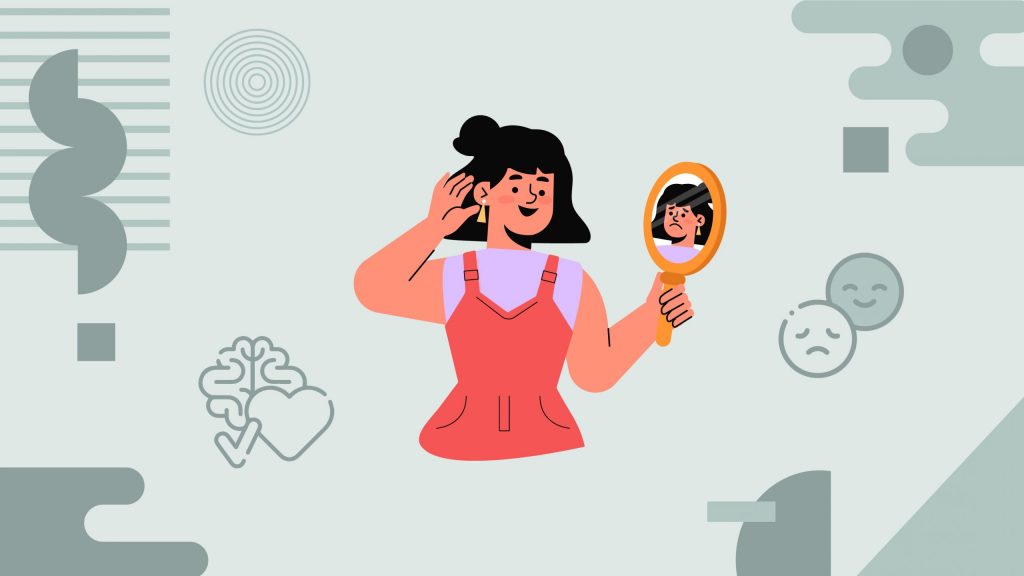Music transcends dimensions.
Have you ever noticed how you lose track of time and place while listening to your favorite music? Isn’t it a timeless experience when your spirit gets immersed in the melodies and rhythms that resonate with your soul?
Isn’t it intriguing how serene songs can gently soothe our senses while upbeat rhythms compel us to tap our feet and elevate our mood?
The power of music to transform our emotional state is truly remarkable.
This is the magical power of music that has existed since the dawn of time. A look into history reveals that there has never been a moment when music hasn’t held a special place in our lives. As humans, we have intuitively relied on music to uplift our moods and emotional states. Yet, we often overlook the profound connection between music and the brain.
This article is intended to get you to the depths of this topic and reveal the facts that help us understand the positive correlation between music and our brains.
What is the Brain-Music Connection?
The brain is intricately wired to process music. When we listen to music, multiple regions of the brain, including the auditory cortex, prefrontal cortex, and limbic system, are activated. This complex network allows us to perceive melodies, harmonies, and rhythms while eliciting emotional responses. This is why we often find ourselves moved by a song, experiencing joy, nostalgia, or even sadness, as the brain connects music with our emotions and memories.
👉 Fun Fact:
Listening to just 15 minutes of your favorite music can increase dopamine levels by up to 9%, which is why we often feel happier or more energized afterward.
Also, music stimulates our neural pathways, leading to various cognitive benefits, including enhanced focus, improved memory, and better problem-solving skills.
#1: Impact of Music on Our Mood
Music can have a profound impact on our mood. Other than being known for lifting our spirits during dark and stressful phases of our lives, music helps us manage our emotions like nothing else. Can you recall a time when you dedicated a song to your loved one to express your feelings? Or how does a particular song become a signature of a memory from the best times in your life? Or how do you turn to calm music and soothing melodies whenever you want to relax and let go of your worries?
Quick Question
Have you ever found a song that brings back a vivid memory? What emotions does it stir up for you?
Aren’t these all testimonies to the fact that music is not just a form of entertainment but a powerful tool for emotional expression and healing? It serves as a soundtrack to our lives, influencing our feelings, memories, and connections in ways that words alone often cannot convey.
#2: Impact of Music on Dopamine and Serotonin
Listening to music can significantly influence dopamine and serotonin levels in the brain. Dopamine, known as the “feel-good” neurotransmitter, is associated with pleasure and reward. Upbeat or enjoyable music stimulates dopamine release, enhancing mood and creating a sense of euphoria.
On the other hand, serotonin plays a key role in regulating mood, anxiety, and overall well-being. Certain types of music, especially soothing or classical melodies, can boost serotonin production, promoting relaxation and a positive emotional state. This dual impact on dopamine and serotonin is why music can quickly elevate mood, reduce stress, and even alleviate symptoms of anxiety and depression.
#3: Impact of Music on Cortisol Levels
Music can also significantly affect cortisol, the body’s primary stress hormone. Research shows that listening to calming music, such as slow-tempo or classical tunes, can lower cortisol levels, helping to alleviate stress. When cortisol decreases, the body enters a more relaxed state, reducing anxiety and tension. Upbeat music can also provide a distraction, refocusing the mind away from stressors, which indirectly lowers cortisol levels.
👉 Pro Tip
If you’re ever feeling stressed or anxious, try listening to calming instrumental music. Studies show that classical music or ambient sounds can lower cortisol levels, reducing feelings of stress and anxiety.
This stress-relief mechanism is why music is often used in therapeutic settings to help manage stress-related conditions. By modulating cortisol, music offers a simple yet effective way to enhance relaxation and support overall mental well-being.
#4: Impact of Music on Our Memory
Music can enhance memory retention and recall. The brain’s association between music and memory is powerful. Have you ever thought about how songs can trigger vivid memories and emotional responses? This testifies to how music and memory share a positive correlation.
Studies have demonstrated that individuals with Alzheimer’s and dementia often retain musical memories even when other memories fade. The power of music is channeled to the point where music therapy is increasingly used in cognitive rehabilitation to support memory recall in patients.
#5: Impact of Music on Our Emotions
Music has a unique ability to evoke strong emotions, often serving as a soundtrack to our lives. From the joy of a wedding march to the sorrow of a funeral dirge, music articulates feelings that words sometimes cannot capture. Go down memory lane and recall how you were amazed by a song that randomly played in your car’s music system that reminded you of your first date. Didn’t it shift your emotional state, bringing back a wave of nostalgia and warmth?
👉 Pro Tip
Experiment with music during your daily routine. Play motivational tracks in the morning to boost your mood and energy and soothing tunes in the evening to unwind.
This emotional connection makes music a powerful medium for storytelling and self-expression, allowing individuals to explore and communicate their innermost feelings.
#6: Impact of Music on Our Behavior
The influence of music extends to our behavior as well. Upbeat music can increase motivation and energy levels, encouraging physical activity, while calming music can promote relaxation and mindfulness. Additionally, research suggests that music can influence consumer behavior in marketing, affecting purchasing decisions and brand perception.
The fact that we resort to calming music to relax our minds explains how music is a powerful tool for managing stress and enhancing our overall well-being. It creates an environment that fosters tranquility, allowing us to unwind and recharge, ultimately improving our mental health and emotional resilience.
#7: Impact of Music on Creativity
Music is a significant catalyst for creativity. Many artists, writers, and innovators use music to get inspiration for their work. The rhythmic and melodic structures in music can stimulate the brain, enhancing creative thinking and problem-solving abilities. Whether through lyrical inspiration or the emotional resonance of a piece, music can unlock new ideas and perspectives.
Challenge
Try listening to a new genre of music for a week. Observe how it impacts your mood, energy, and creativity compared to your regular music choices.
Try for yourself and see how music can open the gates to creativity. Try learning a new instrument and see how it captures your interest and enhances your creativity—allowing you to freely flow and learn new concepts while expressing yourself in ways you never thought possible.
Conclusion
The influence of music on our brains is profound and multifaceted. From enhancing mood and memory to shaping behavior and fueling creativity, music is an integral part of the human experience. Understanding this connection empowers us to harness the benefits of music in our daily lives, whether for relaxation, motivation, or emotional expression.
As we continue to explore the impact of music, it remains clear that its ability to connect with our minds and hearts is unmatched, enriching our lives in countless ways.





















